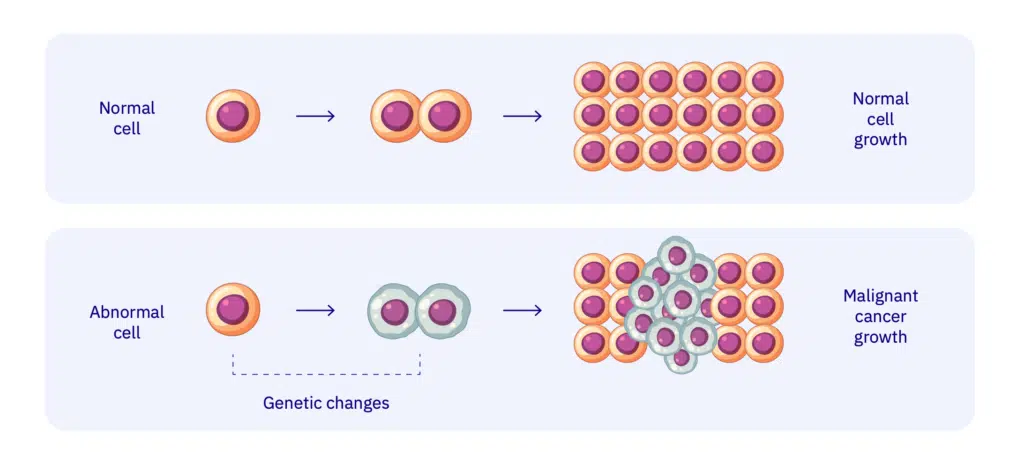Understanding cancer and mutations
Cancer is a complex and often misunderstood disease. To help make sense of it, let’s break down the basics of how cancer and mutant cells work in the body.
What are cells?
Cells are the basic building blocks of all living things, including our bodies. They are tiny, living units that perform specific functions to keep us alive and healthy. Different types of cells make up our skin, muscles, organs, and bones. Cells grow, divide to make new cells, and die in a controlled manner.
What is DNA?
Inside each cell is a nucleus, which contains DNA (deoxyribonucleic acid). DNA is like a set of instructions that tells the cell how to function, grow, and reproduce. It’s made up of genes, which are specific sequences that control different aspects of the cell’s behavior.
What are mutations?
A mutation is a change or error in the DNA sequence. Mutations can happen for various reasons, such as exposure to harmful chemicals, radiation, or sometimes even by chance when cells divide. Most mutations are harmless, but some can cause problems.

How do mutations lead to cancer?
Normally, cells grow and divide in a controlled manner. If a cell is damaged or old, it dies, and a new cell takes its place. However, when mutations occur in certain genes that control cell growth and division, they can disrupt this process. These critical genes are often called oncogenes (which promote cell division) and tumor suppressor genes (which control cell division and repair DNA mistakes).
When both types of genes malfunction, cells can start to grow uncontrollably, forming a mass called a tumor.
High mutation rate
Cancer cells typically have a higher mutation rate compared to normal cells. This is because the mechanisms that usually repair DNA damage and regulate cell division are often impaired in cancer cells. This impairment leads to more frequent and uncontrolled mutations.The high mutation rate in cancer cells contributes to their ability to evolve rapidly. This rapid evolution allows them to adapt to different environments within the body, develop resistance to treatments, and metastasize to new locations.
Protyon's quick response to new mutations
Traditional methods often face challenges such as limited specificity, side effects, and varying patient responses. With our groundbreaking diagnostic tool we analyse tumors and mutations to give advanced insights how well the cancer treatments will respond. We aim to enhance therapy selection for each individual patient through knowledge-based guidance.
Contact us
Feel free to reach out to us and book an appointment with one of our experts in the field of molecular modeling. We are here to support you.
